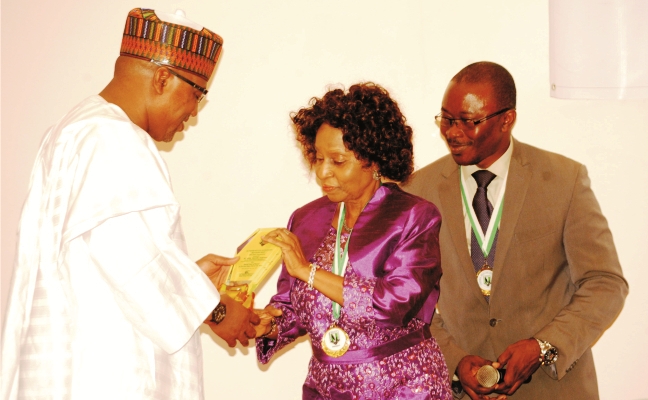Business
UNCTAD Tasks African Countries On Debt Management

The United Nations Conference on Trade and Development (UNCTAD), has urged African countries to continue strengthening their macroeconomic fundamentals for the avoidance of more debt traps in the future.
UNCTAD gave the advice in its globally presented 2016 Economic Development in Africa Report, entitled “Debt Dynamics and Development Finance in Africa’’.
The report which was also presented in Lagos by the United Nations Information Centre (UNIC), also evolved measures aimed at pursuing structural transformation to avoid debt trap.
“As a result of the high costs in financing Sustainable Development Goals, the importance of domestic debt in development finance has gained prominence.
“However, this also highlights the importance of maintaining debt sustainability and preventing debt distress.
“Debt channelled to investments for Sustainable Development Goals should be given more flexibility,’’ it said.
The report said that it was imperative for African countries to raise adequate levels of financing for development from domestic and external sources, to meet development goals.
It also recommended the leveraging of domestic and external debt, without compromising debt sustainability.
The report also enjoined African countries to lower current account deficit, as well as lessen exposure to commodity price volatility through export diversification.
The 156-page report with detailed case studies of Nigeria, Ghana, Kenya, Tanzania and Zambia, also advised African countries to combat corruption and misappropriation of funds.
It also recommended the need for them to design sound investment programmes with carefully selected projects, for speedy implementation.
The report said that it was also needful for the countries to promote greater efficiency in government’s spending and revenue collection.
The Director of UNIC, Mr Ronald Kayanja, had before the public presentation of the report, said that the 2030 Development Agenda would guide global collective action for sustainable development for 15 years.
According to him, Africa will need between $600billion to $1.2trillion every year to achieve the goals.
“There are worrying signs that people in Africa are increasingly unhappy with the state of their countries’ economies.
“High inequality, stagnant incomes, not enough jobs for the youths, and too little cause for optimism, stoke legitimate fears for the future for many in Africa.
“I hope with this report, policy makers in Africa will focus more on how to generate the needed resources to ensure that we meet the global goals by 2030, ‘’ he added.
Transport
Nigeria Rates 7th For Visa Application To France —–Schengen Visa

Transport
West Zone Aviation: Adibade Olaleye Sets For NANTA President

Business
Sugar Tax ‘ll Threaten Manufacturing Sector, Says CPPE

In a statement, the Chief Executive Officer, CPPE, Muda Yusuf, said while public health concerns such as diabetes and cardiovascular diseases deserve attention, imposing an additional sugar-specific tax was economically risky and poorly suited to Nigeria’s current realities of high inflation, weak consumer purchasing power and rising production costs.
According to him, manufacturers in the non-alcoholic beverage segment are already facing heavy fiscal and cost pressures.
“The proposition of a sugar-specific tax is misplaced, economically risky, and weakly supported by empirical evidence, especially when viewed against Nigeria’s prevailing structural and macroeconomic realities.
The CPPE boss noted that retail prices of many non-alcoholic beverages have risen by about 50 per cent over the past two years, even without the introduction of new taxes, further squeezing consumers.
Yusuf further expressed reservation on the effectiveness of sugar taxes in addressing the root causes of non-communicable diseases in Nigeria.
-

 News3 days ago
News3 days agoDon Lauds RSG, NECA On Job Fair
-

 Niger Delta2 days ago
Niger Delta2 days agoPDP Declares Edo Airline’s Plan As Misplaced Priority
-

 Sports2 days ago
Sports2 days agoSimba open Nwabali talks
-

 Nation2 days ago
Nation2 days agoHoS Hails Fubara Over Provision of Accommodation for Permanent Secretaries
-
Niger Delta2 days ago
Stakeholders Task INC Aspirants On Dev … As ELECO Promises Transparent, Credible Polls
-
Niger Delta2 days ago
Students Protest Non-indigene Appointment As Rector in C’River
-

 Oil & Energy2 days ago
Oil & Energy2 days agoNUPRC Unveils Three-pillar Transformative Vision, Pledges Efficiency, Partnership
-
Rivers2 days ago
Fubara Restates Continued Support For NYSC In Rivers

